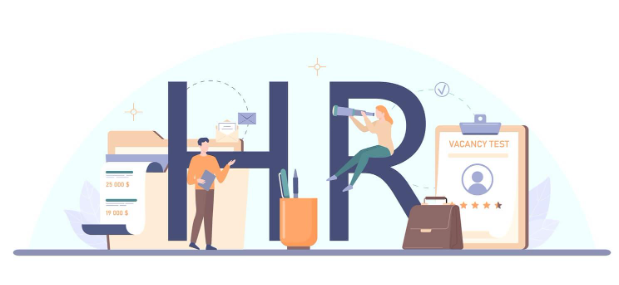Why More Startups Are Automating Their HR Processes in 2025

moving faster than ever. With lean teams, remote workforces, and aggressive growth goals, manual HR management no longer fits the modern startup model. HR tasks like onboarding, payroll, and compliance take up valuable time and increase the risk of mistakes. That’s why more startups are turning to HR automation—to streamline operations, reduce costs, and stay compliant in an increasingly complex business environment.
Automation is no longer just for big corporations. It’s become a startup essential, helping founders focus on growth instead of getting stuck in administrative work.
The HR Challenges Startups Face in 2025
Startups often operate with limited staff and tight budgets. Founders and small teams wear multiple hats, which makes HR tasks feel like a burden rather than a strategic function. This creates a range of challenges:
Limited Resources
Most startups don’t have a dedicated HR department in the early stages. Instead, HR duties fall on founders, COOs, or office managers—who also handle product development, marketing, or operations. Managing onboarding, payroll, compliance, and employee records manually eats up hours that could be better spent on growth activities.
Remote and Hybrid Workforce Management
The remote work revolution continues in 2025. Startups now recruit talent globally, but this also means managing time zones, local labor laws, and digital onboarding. Without automated HR systems, it becomes nearly impossible to keep track of remote team management efficiently.
Compliance and Legal Risks
Startups face legal risks if they don’t comply with employment laws, contracts, and documentation standards. From unfair dismissal claims to payroll errors, the cost of mistakes can be high. Automation reduces the likelihood of compliance issues by standardizing processes and record-keeping.
High Employee Turnover
Startups often experience higher turnover rates as they scale. This leads to repetitive onboarding, offboarding, and training cycles. Manual processes make this workload even heavier, which is why automation is becoming the go-to solution.
The Benefits of Automating HR for Startups
Automation isn’t just about reducing admin work—it’s about optimizing the entire employee experience. Here’s how automation is changing startup HR in 2025:
Streamlined Onboarding
New hire onboarding can be time-consuming, especially when done manually. With automated HR platforms, startups can create onboarding workflows that handle paperwork, employee setup, document collection, and training assignments. This ensures every new employee has a consistent, professional experience from day one.
Simplified Payroll and Leave Management
Handling payroll in-house without automation is risky and inefficient. Automated systems calculate pay, manage leave balances, handle tax deductions, and generate payslips in minutes. This eliminates costly errors and reduces the stress of payday for startup founders and finance teams.
Performance Management and Employee Engagement
Startups need to track performance without creating layers of bureaucracy. Automated performance management tools help set goals, collect feedback, and monitor employee development over time. Regular check-ins, engagement surveys, and real-time feedback systems keep employees motivated and aligned with company goals.
Remote Workforce Support
Automation allows startups to manage remote teams with ease. Cloud-based HR systems enable employees to access their records, request time off, and complete training from anywhere in the world. This flexibility is crucial for startups with distributed teams.
Reduced Costs
Hiring an in-house HR team is expensive, especially for early-stage startups. Automating HR tasks allows businesses to avoid unnecessary headcount while maintaining compliance and professional HR management. It’s a cost-effective way to scale without sacrificing operational control.
How SaaS Platforms Simplify Startup HR
Modern SaaS solutions are driving this shift in HR management. Platforms like Happy HR provide startups with an all-in-one cloud-based system to automate HR processes. From recruitment and onboarding to compliance management and performance reviews, Happy HR streamlines every stage of the employee lifecycle.
What makes solutions like this so valuable is their scalability. As startups grow, they can easily add new features or expand their HR capabilities without switching platforms. This saves time, reduces complexity, and provides a seamless HR experience for both employers and employees.
Happy HR also helps with employee self-service, allowing staff to manage their personal details, request leave, and access important documents without needing to contact HR or management. This not only empowers employees but also frees up leadership to focus on strategy and growth.
The Future of HR Automation and AI
The HR tech landscape is evolving rapidly, and 2025 is set to be a transformative year. Startups are adopting AI-driven HR tools to improve decision-making, reduce bias in hiring, and predict employee turnover before it happens. AI algorithms can analyze employee engagement data, flag potential issues, and recommend actions to improve team satisfaction.
This trend is part of a broader movement toward smarter, AI-powered operations across all industries. As discussed in how artificial intelligence is automating businesses, AI is no longer just a buzzword—it’s actively reshaping workflows, customer service, and now HR processes for startups and enterprises alike.
Machine learning is also helping startups personalize learning and development programs, aligning employee growth with company goals. This level of customization was once available only to large corporations, but SaaS platforms are making it accessible to small businesses and startups.
Wrap Up
In 2025, startups that ignore HR automation risk falling behind. Manual HR processes are time-consuming, prone to error, and incompatible with the speed and flexibility modern businesses need. By automating HR, startups create a stronger foundation for growth, reduce overhead costs, and enhance employee satisfaction.
HR automation isn’t just about efficiency—it’s about building a better workplace where employees feel supported, and founders can focus on scaling the business. With tools and other SaaS solutions, startups can automate the boring stuff and get back to doing what they do best: innovating.

Source: Why More Startups Are Automating Their HR Processes in 2025




